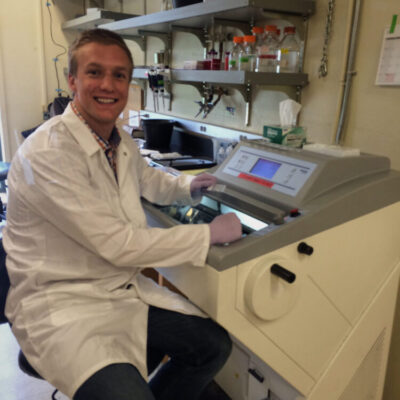Grant Schroeder Rose Hills
Beta-Catenin as a Mechanotransducer in Skin Morphogenesis
Despite a deep understanding of many of the molecular components involved in organ development, recreating complex tissues from undifferentiated cells has proven difficult in the field of regenerative biology. For instance, current skin culturing techniques in clinical settings fail in yielding operational hair follicles and sweat glands, creating problems for patients needing large skin grafts. A major reason for this is that cell differentiation in vivo is influenced not only by classically studied molecular signals, but also by tissue-level force interactions. This research aims to investigate the critical interface between cellular sensing of the physical environment and signal transduction in the experimentally tractable chicken skin. In particular, I will study a dual-function protein called Beta-catenin that has been shown to translocate from epidermal cell membranes to nuclei following tissue compression in feather bud morphogenesis. In analyzing the role of this mechanotransducer in signal transduction and cellular differentiation, I hope to connect physical tissue interactions to cell fate and possibly provide new insight into the shortcomings apparent in current clinical skin culturing techniques.
Message To Sponsor
I would like to express my deepest gratitude to SURF and the Rose Hills Foundation for allowing me to pursue independent research as an undergraduate. Becoming involved in research at Berkeley has been the most rewarding experience that I have had in college, and thanks to the Rose Hills Foundation, I will be able to pursue my passion for biomedical research full-time this summer. Over the next few months, I will not only gain experience in a scientific field that I am passionate about, but I will also cultivate important life skills as I collaborate with other SURF fellows and work towards completing my senior thesis.